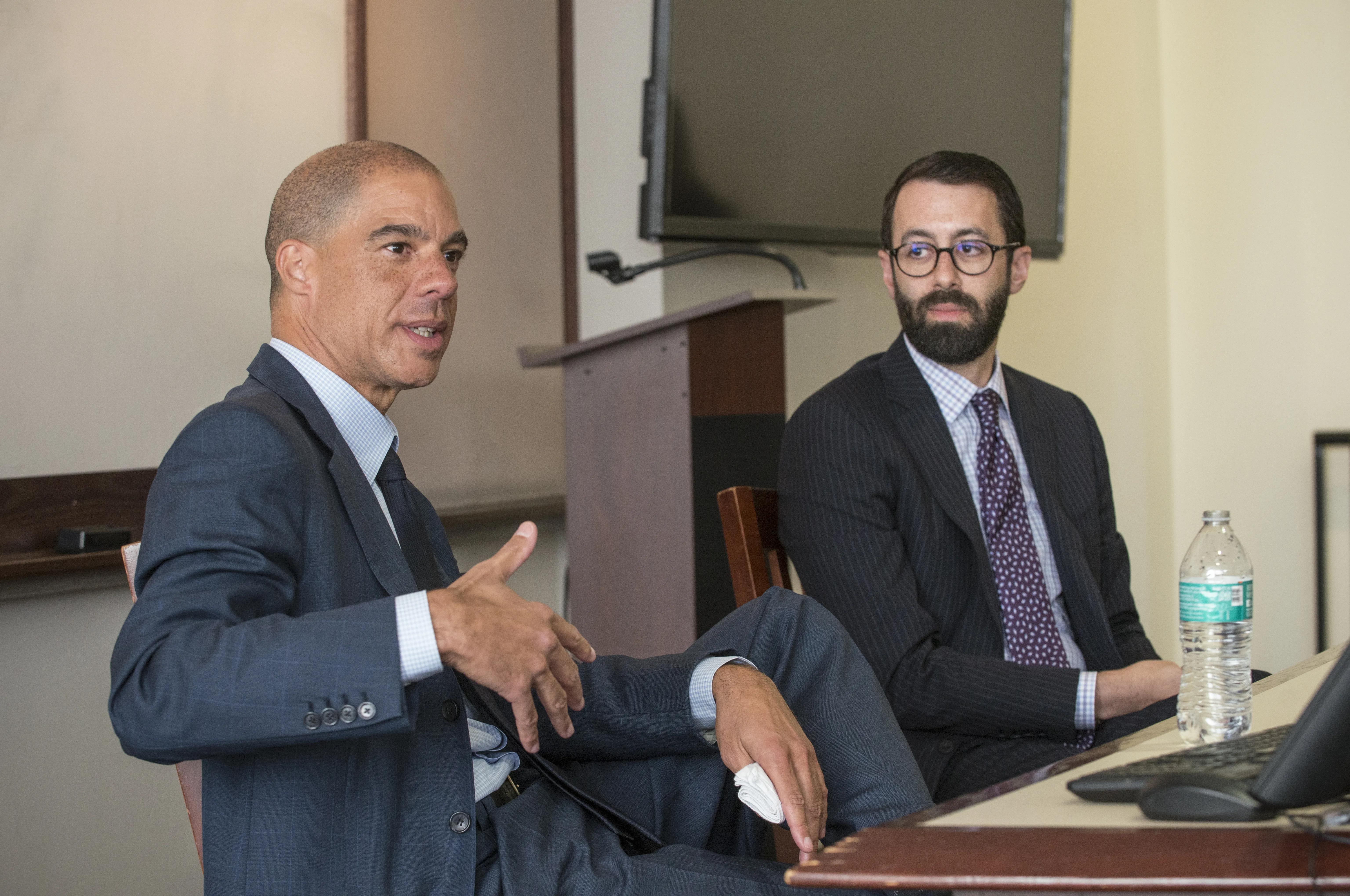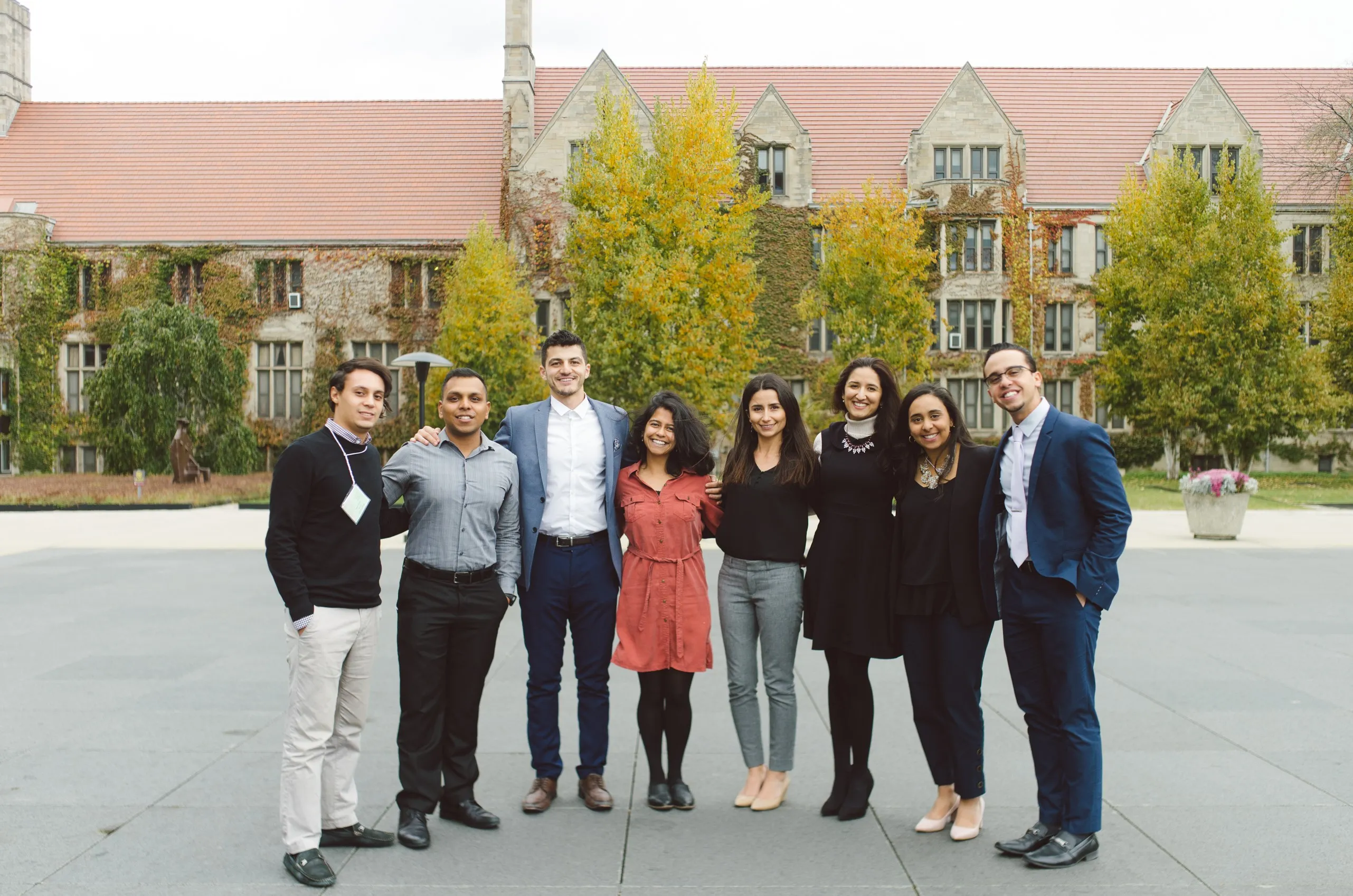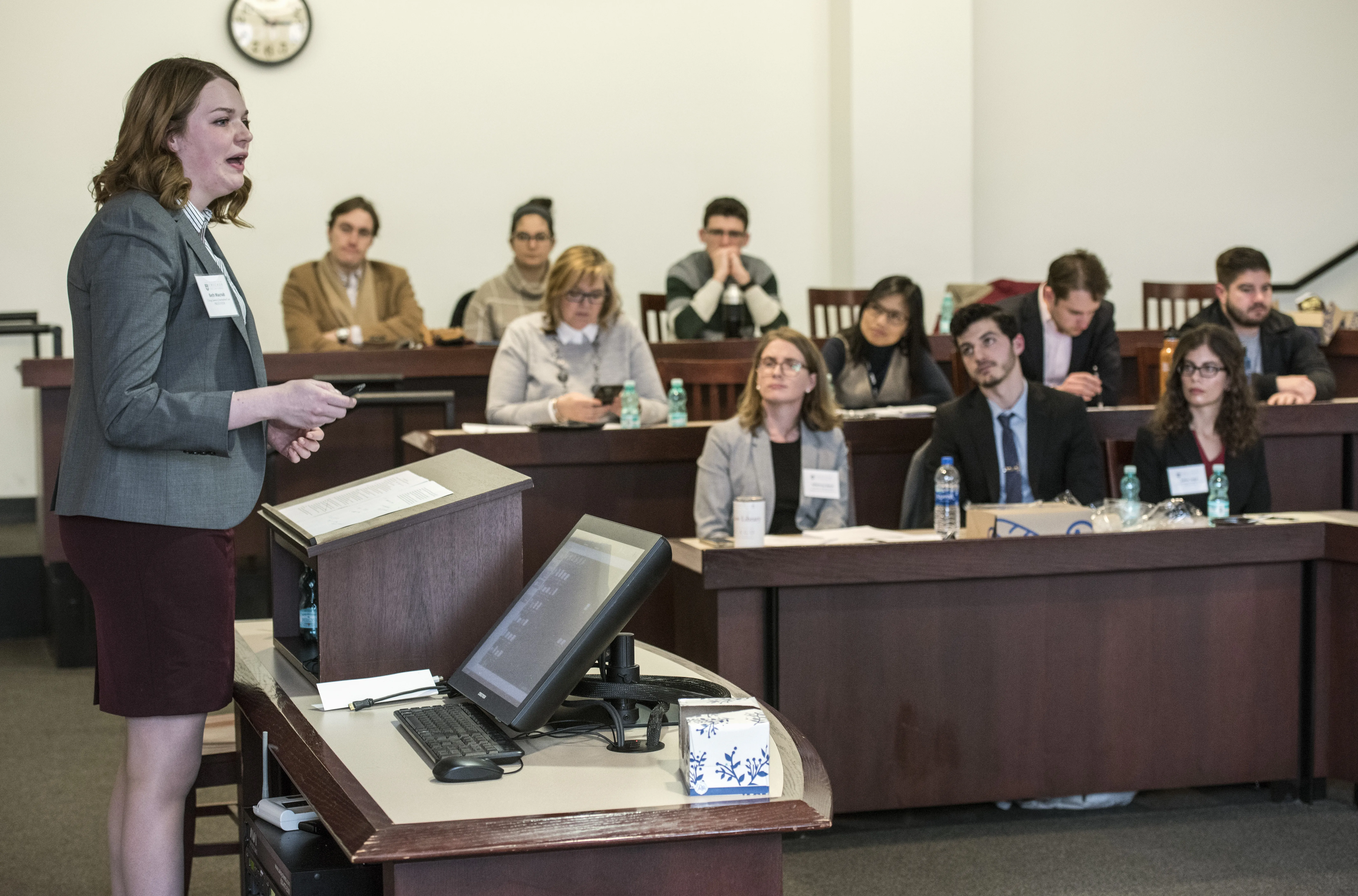Visiting Jurist Tells Students about his Path to a Federal Judgeship

Paul Watford had not expected President Obama to nominate him for the United States Court of Appeals for the Ninth Circuit. And that is par for the course for judicial appointments; it is not a career path one can easily plan. Still, as a lawyer in private practice with few political connections, the note he received from a former colleague nearly six years ago came as a particular surprise.
“I got an email asking if I had any interest in being a federal judge,” Watford told Law School students during a recent talk as part of the Law School’s Edward H. Levi Distinguished Visiting Jurist Program. “The email was completely out of the blue.”
The email’s author was an Obama administration official Watford had met when both were clerking for Supreme Court Justice Ruth Bader Ginsburg in the mid-1990s. Not long after receiving it, Watford met with a lawyer from the Office of the White House Counsel, and three months later his nomination process began.
“If it had not been for that email from my co-clerk, I would not have gotten the interview,” Watford said. “That’s how random it was.”
Throughout the talk, moderated by Professor John Rappaport—who clerked for both Watford and Ginsburg—Watford emphasized the importance of relationships and the role of mentors in shaping his career, beginning with his decision to attend law school. Watford had planned to be a history teacher yet ultimately decided to attend the UCLA School of Law at the urging of his father and his wife.
After a successful first year of law school, a professor suggested that he consider clerking and steered him toward Judge Alex Kozinski.
Watford’s description of the road to judgeship resonated with law students who attended the talk, including Steven Hazel, ’19.
“Especially for an audience of law students just starting our legal careers, it was comforting to learn that Judge Watford didn’t start law school with a master plan about how to become a federal judge. He just worked hard, had great mentors, and kept trying new experiences.”
On the experience of sitting on the Ninth Circuit with Kozinski, Watford mentioned that when he first came to the court, some of his new colleagues thought he might simply follow in the footsteps of his mentor. This concern was dispelled after his first case resulted in a 2-to-1 decision with Kozinski and Judge Stephen Reinhardt in the majority and Watford dissenting.
Watford has, however, tried to emulate Kozinski’s open-minded approach to conferences.
“I have formed preliminary views when I go into conference,” he said. “But they are preliminary. I learn from my colleagues and hear what they have to say, and I can go back and rethink things if need be.”
Discussing the challenges of being a judge, Watford stated that in cases involving questions that the Supreme Court has yet to address, his job is not to predict how the justices would rule. Rather, he tries to reach the right answer, given the existing law. Watford stressed the importance of clerks in these situations, and he looks for clerks who are willing to argue with him and tell him that he is wrong.
While Watford felt that his experience as an assistant US attorney and in private practice prepared him for the bench to a certain extent, he said transitioning to his role as a judge had some challenges. One of the most frustrating parts of being on the court of appeals for him is that there are occasionally cases where he thinks the outcome should be one way, but precedent or other authority dictates a different outcome.
“You’re compelled to basically inflict what you think is an injustice on a losing litigant because that’s what the law compels you to do. Unfortunately, that just comes with the territory.”
Watford finished his talk with some advice to students.
“Do as well academically as you can,” he said. He added, “I don’t think there’s ultimately a correlation between getting high grades and how successful you are as a lawyer,” but, as he experienced, “doing well academically in your first year can open a lot of doors.”


